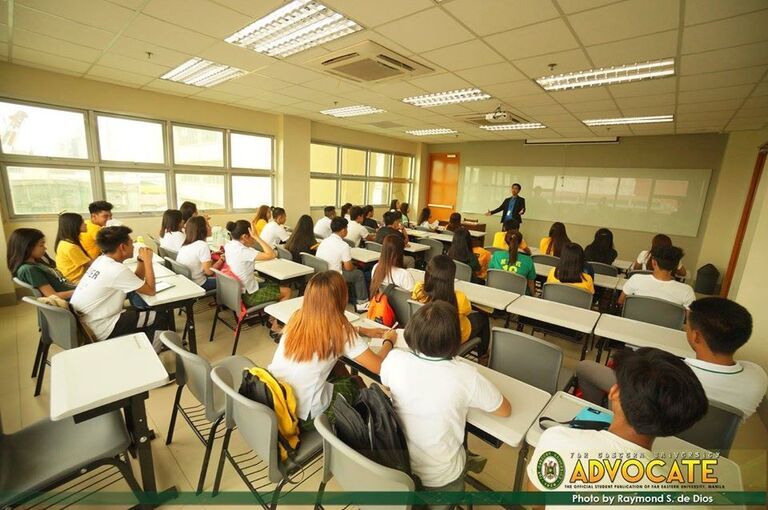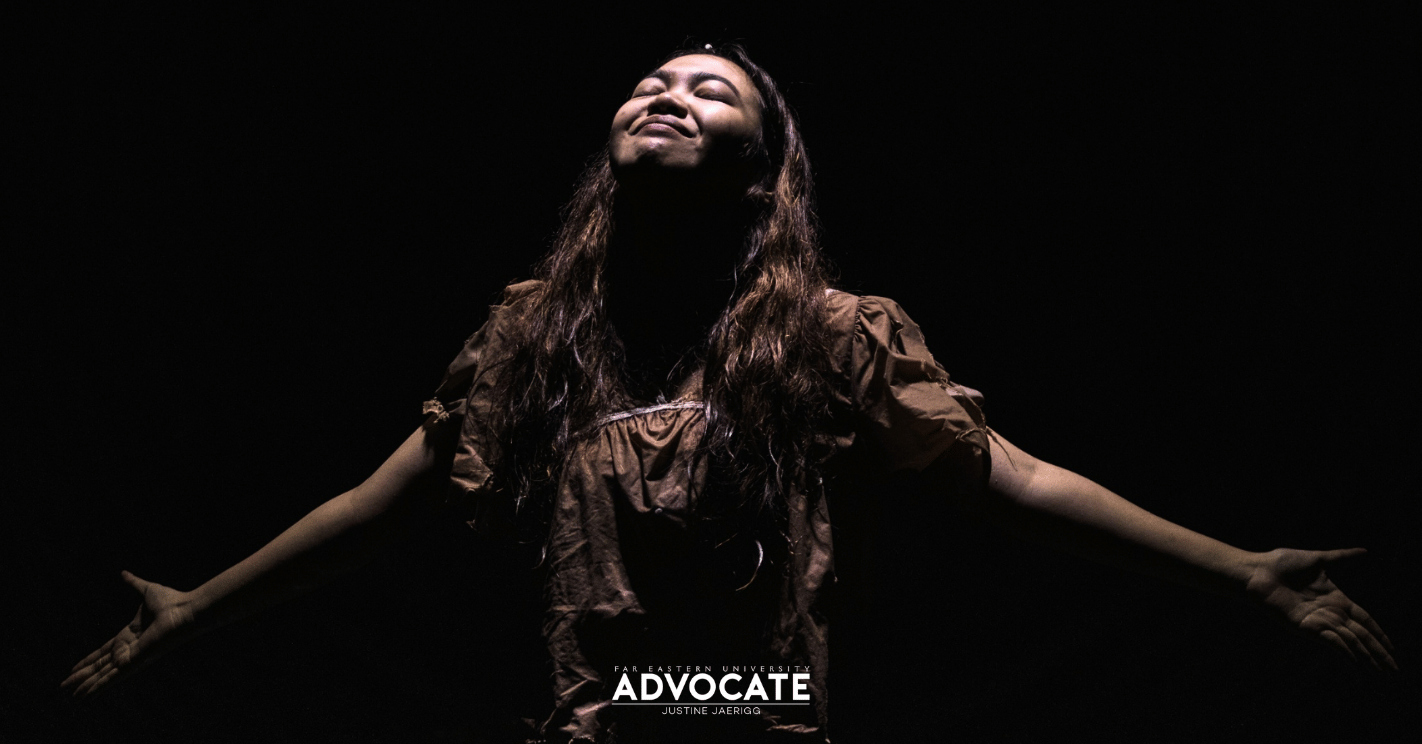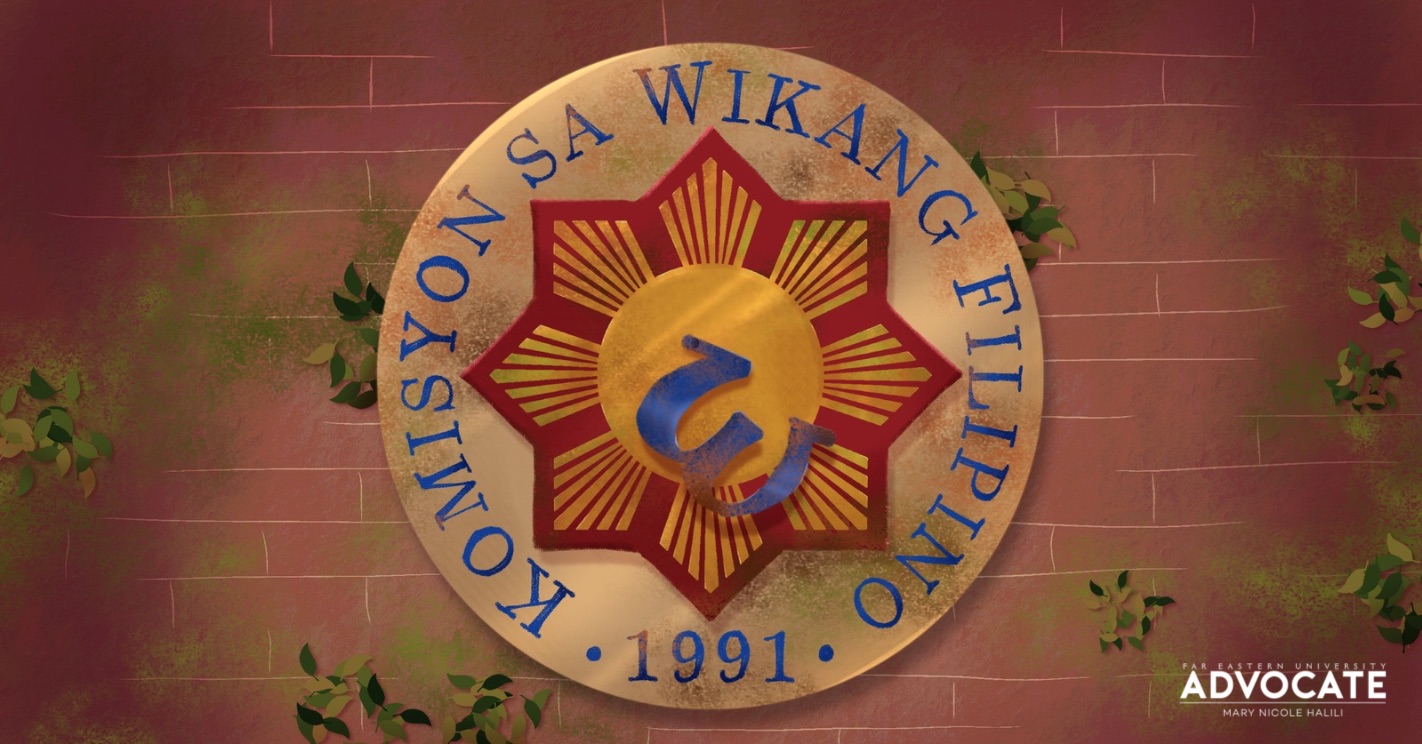
FEUSHS opens its classes
- June 21, 2016 18:21
FEU Advocate
October 09, 2021 03:25

Mental health problem is no fiction. It is invisible because it resides in the mind, but this fight does not need to be fought alone. As we celebrate National Mental Health Week, let us find out what one can do to maintain the Tamaraw mentality: being brave, visible, and aware.
The celebration of National Mental Health Week fits the lid with the brimming stress that the pandemic has been rubbing on everyone, especially the students, who continue to pursue their education online. Seemingly that the lockdowns are far from over, its inherent effect on one’s mental well-being is getting worse as the Department of Health (DOH) spokesperson Maria Rosario Vergeire said that there had been an increase in the volume of mental health-related calls in April, May, June, and July last 2020.
People have different ways of coping with the effects of the pandemic, yet one wolf-disguised-as-sheep behavior is “toxic productivity.” According to Dr. Julie Smith, an England-based clinical psychologist featured by the BBC, toxic productivity is described as “an obsession with radical self-improvement above all else,” which results in having a guilty feeling of not doing enough despite being productive.
It is important to identify these “hard-to-see” signs as these can largely affect our well-being. Sometimes, students tend to be in “robot” mode, where they just do things as demanded as a way of coping with the effects of the pandemic, yet sometimes, they have to “update their software” and “reinforce their firewalls” to continue staying up and running to the best of their abilities.
Magnifying the Fine Details
In an interview with FEU Advocate, the Far Eastern University (FEU) Guidance and Counselling (G & C) Director Dr. Sheila Marie “Shake” Hocson emphasized the importance of mental health in the college student’s life.
“Very important siya kasi kung wala tayong mental health— of course hindi tayo magiging holistically developed. We always believe with the power of mental health kasi ito rin ‘yung makaaapekto sa atin: to our thoughts, feelings, behavior, decisions, character, and even to our success in life (It is very important because if we lack mental health— of course we will not be holistically developed. We always believe in the power of mental health because it is the very thing that can affect us: our feelings, our behavior, our character, and even our success).”
How can students check their mental well-being? According to Dr. Hocson, the letters that need remembering are B-A-S-C.
B stands for “behavior,” which refers to sudden changes of it. For example, a calm and sound student before has now become fretful and impatient. Furthermore, Dr. Hocson added that this can also be noticed if one has tendencies to “sadfish (act of sharing emotional problems, often exaggerated, to gain sympathy)” or overshare online, which can result in emotional contagion and disruption of the safe online environment.
A stands for “affect.” This refers to when one feels easily irritated, and low-spirited due to seemingly endless problems. S stands for “soma,” as mental health problems can also have physical manifestations. This includes extreme weight gain/loss, lack/excess of sleep that can be manifested in eye bags, poor hygiene, and physical manifestations of substance abuse, game addiction, etc. Lastly, C stands for “cognition.” According to Dr. Hocson, this refers to the negative thoughts and worries towards self, others and one’s future, and even on other things.
In these trying times, one word is what we need to keep— strength.
“Tayo pong lahat ay may strength (We all have inner strength) as our mental health and wellbeing is rooted from our cognition or thoughts; it can become our belief and philosophy; it can become our mindset; it can become our feelings; it can become our action; it can become our decision, and it can become our character strength that will definitely help us to cope,” Dr. Hocson said.
She added the significance of others’ participation and involvement in one’s well-being. Students can be backed up by environmental strength that can come from one’s resources, religion, loved ones, family, friends, schoolmates, institutions, community, and/or country.
However, Dr. Hocson warned against “fake strengths,” like illicit substances and vices, as they are fake coping mechanisms, which do more harm than good. She also advises digital netizenship and digital wellbeing as if there are a lot of oversharing and sadfishing it can influence negative emotions that can lead to emotional contagion and lack of safe spaces.
Moreover, recalibration of thoughts is one of the most important for Dr. Hocson, as when one starts to develop irrational or exaggerated thoughts, the time things start going downhill as this can be one of the root causes of the problem; one may start to overthink or have negative thoughts. This can result into stress, sleeplessness, fretfulness, fatigue, mood change, lack of focus, and other mental health concerns.
Strengthening the Tamaraw Psyche
‘Mental health’ as a topic of conversation carries such a heavy yet delicate gravity under the country’s societal and even familial stigma fueled by a lack of awareness of its complexities.
As the FEU University Peer Counselors and FEU Psychology Society along with the University’s Guidance and Counseling program make it their mission to expand the mental health space of the Tamaraw community, the challenge of a new normal created due to pandemic proved to be a hole in the road.
Catching most people unprepared in dealing with the consequences of the pandemic, being mindful of one’s mental and emotional state is a key aspect of maintaining one’s health, said FEU Psychology Society’s adviser Gabrielle Rodriguez.
“The main advocacy [of] the FEU Psychology Society is to foster mental health awareness, and to provide support to the FEU student body through its events ... In addition to this, the organization aims to help students understand their issues and become enlightened of the trends of mental health,” Rodriguez added.
As a non-physical aspect of well-being, knowing the trends would not only help one recognize patterns but will also render them aware of the internal and external effectors of a deteriorating mental status.
Likewise, committed to providing immediate responses to support the students, Danilo Talusan, who is serving as the FEU Peers’ adviser, stated that their organization “has always been and will always be at the forefront of holistic personality development of students that empowers them in recognizing their abilities and thus, make sound judgment in these trying times.”
Each organization is open to extending a helping hand in recognition of support systems’ impact on the psyche, through a variety of activities.
“Through our modules, activities, projects, creative therapies, and interactions, we are able to provide the Tam community a fun-filled, heart-centered, and learning-focused experience,” Talusan shared, with the hope that their programs would “create ripples and these ripples will create the tides that will wipe away the stigma we all grew up with and finally make the world realize the significance of their mental state.”
Springing to Action
What makes an advocacy stronger is the desire for change, which fan the flames of action against the rising concerns over the mental state of the FEU studentry. As visions and causes merged into existence in the form of mental health allied University organizations, their motivations began to permeate into programs and activities.
Magnifying the voices of Tamaraw Psychology students in unity to raise mental health awareness on campus, FEU Psychology Society President Sean Dale Manaloto revealed that their organization “will extensively champion mental health amidst adversities” this year.
“In line with this, the officers and the directors of the organization conceptualized various projects… These projects aim to talk about mental health in different aspects of our life, how [we can] champion it, and how do we shatter [the] stigma that revolves around it. This is something that the community should look forward to because we will give them a year of fun and excitement while reaching our goal,” Manaloto furthered.
With the larger responsibility that the FEU Peers has as a university-wide organization, a number of activities are lined up this month on their calendar— Hear Out: ExPEERience Creative Therapies (October 10), which harnesses the soothing power of music therapy; and Mental Health Summit 2021 – Scale-Up Quality Mental Health Care (October 29) that is composed of seven virtual events. Aside from this, the organization also has a couple of other internal activities designed to train and equip its members with the skills needed to handle student cases for a referral.
As the Filipino society continues to open its doors to the issue of mental health an inch at a time, each effort proves to be a monumental push for open discussion and crisis management. It is high time to make the intangibility of mental states visible as we stride forward through this pandemic.
- Angelic Mizpah Chaste C. Bulanhagui and Yuichi P. Desquitado
(Illustration by Jazmine Merry D. Veluya/ FEU Advocate)
References:
CNN Philippines. (2020, August 26). DOH reports spikes in mental health-related calls due to COVID-19 crisis. https://www.cnnphilippines.com/news/2020/8/26/Mental-health-anxiety-suicide-hotline-Philippines-COVID-19.html
Smith, J. (2020, May 24). What is Toxic Productivity? Dr Julie Smith - Mental Health Awareness Week - BBC [Video file]. YouTube. https://youtu.be/Y2UTTa0DXd8









